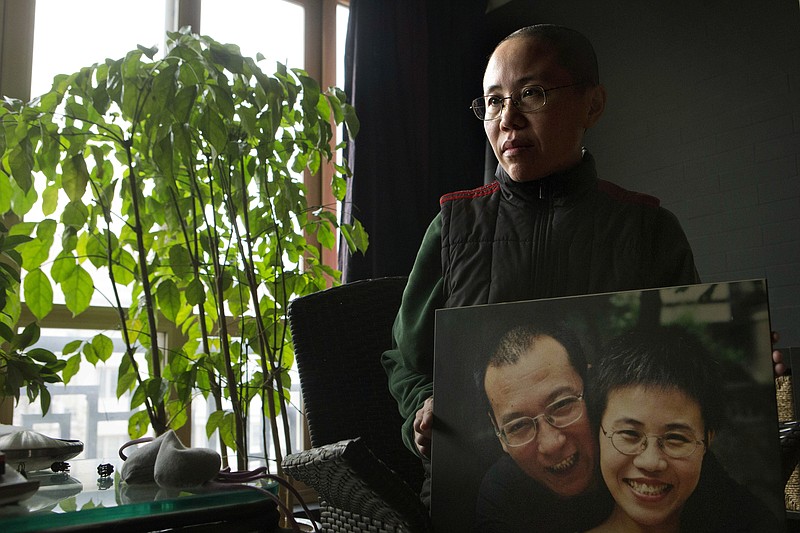BEIJING (AP) - Liu Xia, the widow of Chinese Nobel Peace Prize Laureate Liu Xiaobo, has left China for Europe after eight years under house arrest, a person briefed on the matter said Tuesday.
Western governments and activists have urged China for years to release Liu Xia, citing the fact that she has never been charged with any crime.
The person who confirmed her departure to The Associated Press requested anonymity because of the sensitivity of the matter.
Su Yutong, a family friend based in Germany, told AP Liu left Tuesday morning from Beijing.
Chinese authorities put her under house arrest in 2010, days after the Norwegian Nobel Committee awarded her imprisoned husband the Peace Prize, infuriating the Chinese government.
Liu Xiaobo died of liver cancer last July while under government custody, prompting a new round of international calls for Liu Xia's release.
China sentenced Liu Xiaobo in December 2009 to 11 years imprisonment on charges of inciting subversion of state power after he helped write a manifesto calling for political and economic liberalization. Chinese authorities repeatedly declined to discuss Liu Xia's confinement, which critics say was cruel and illegal.
Authorities had assigned guards around-the-clock outside Liu's Beijing home and restricted her access to Internet and the outside world, allowing her only occasional phone calls with a small circle of friends.
An accomplished artist and poet, Liu told Associated Press reporters during an unexpected visit to her home in 2012 that she had anticipated China would punish her for her husband's Nobel award but she had not expected to be kept under "Kafkaesque" house arrest.
Liu's friends in recent months have said her mental condition has steadily deteriorated, particularly since the death of her husband.
